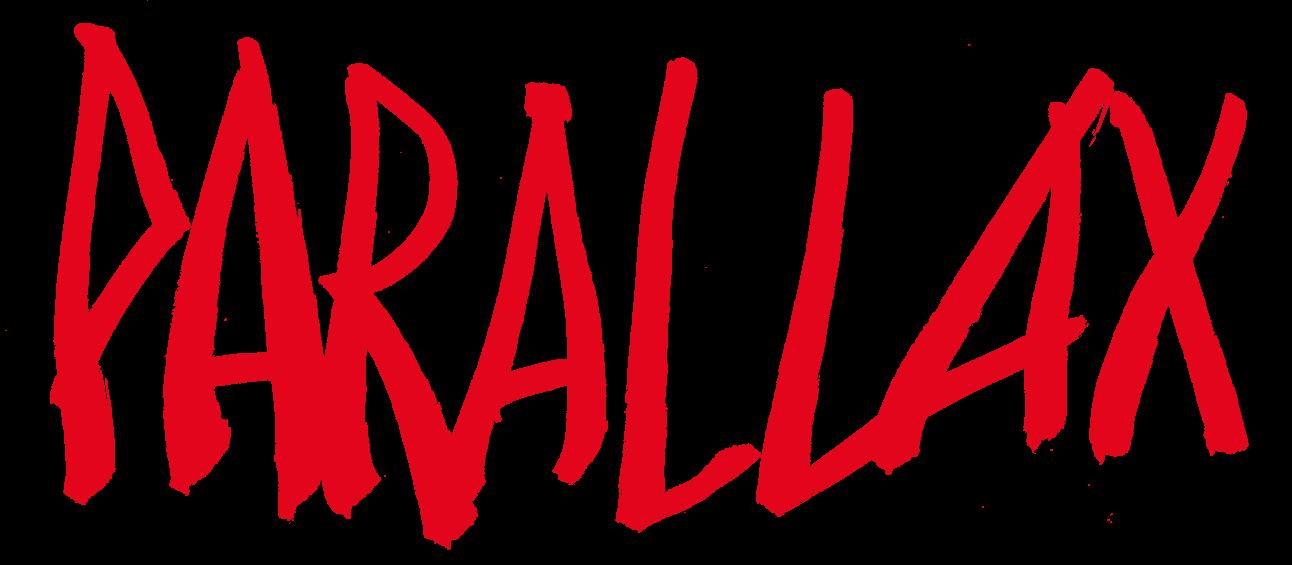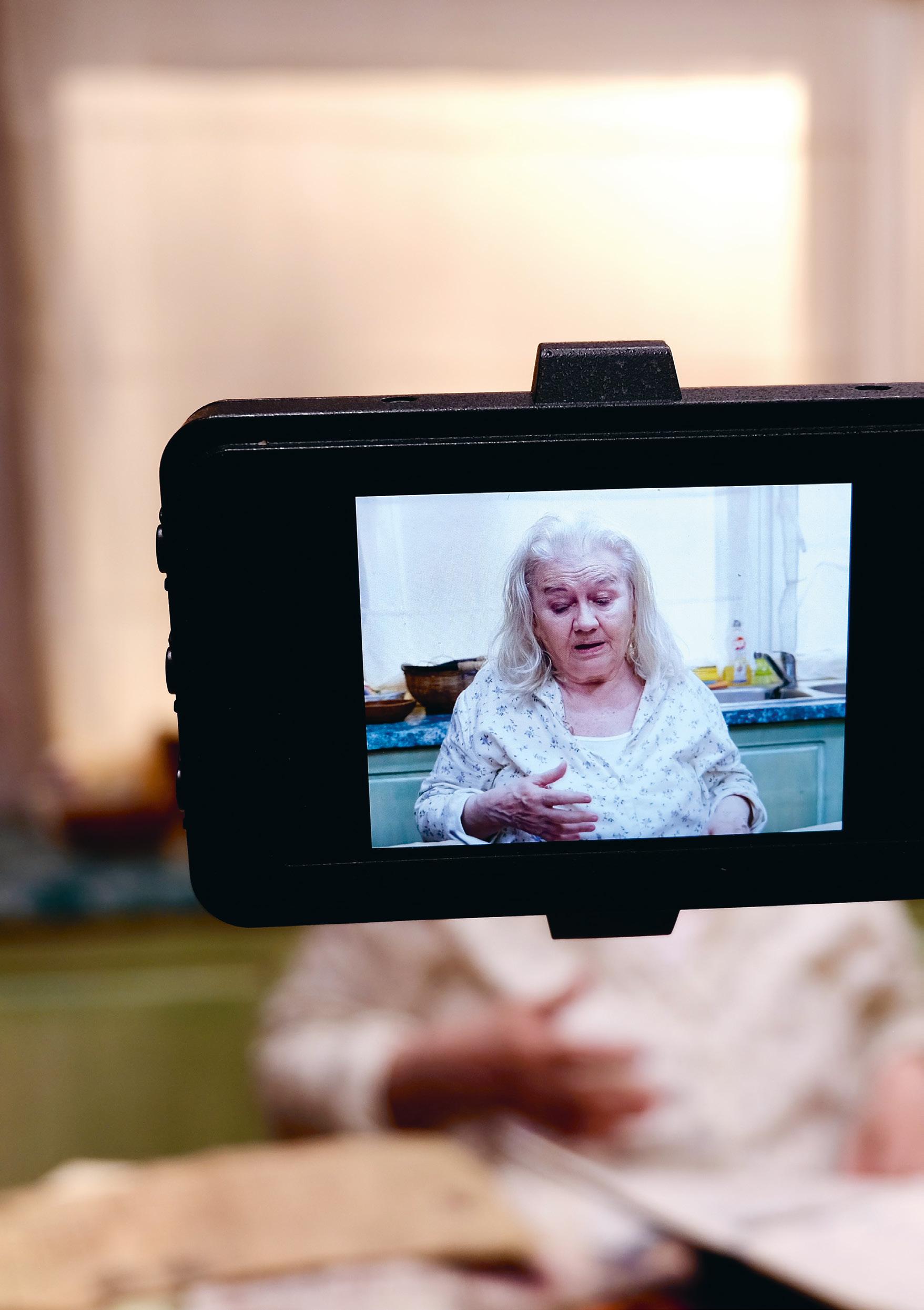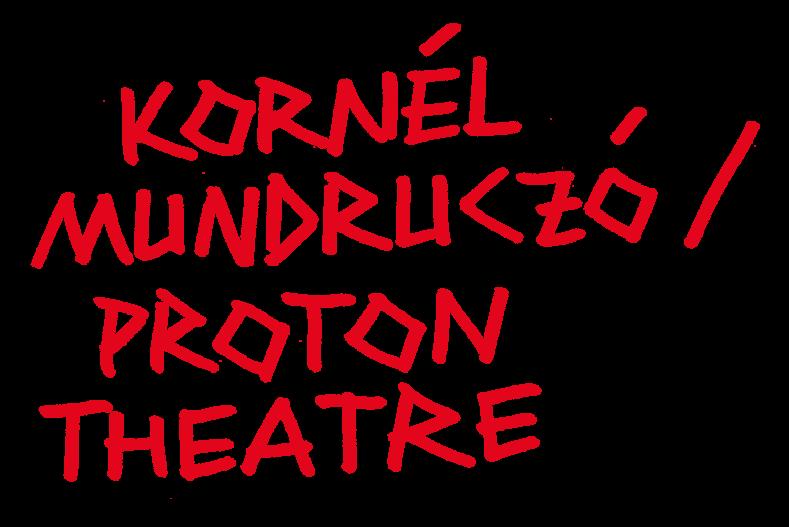





Three generations of one family. One small flat in Budapest. The grandmother is declining to accept a medal of honour as a Holocaust survivor; the daughter needs proof of her Jewish identity to secure a school place for her son in their new home in Berlin; the adult son is seeking out his own identity as a homosexual man. They all have the same questions: can we liberate ourselves from inherited identity ascriptions? When is identity a privilege, when is it a burden? It all depends on the point of view. With PARALLAX (the term describes the apparent change in the position of an object at different angles of view) the Hungarian director Kornél Mundruczó and his independent company Proton Theatre develop an epic family tale and in doing so draw a deeply touching picture of conventions situated between Eastern European Judaism and the LGBT+ community who are enduring innumerable restrictions in Hungary.





27 / 28 / 29 / 30 May, 8.30pm, 31 May, 5pm
Halle G im MuseumsQuartier Hungarian German and English surtitles
approx. 2 hrs.
Please note
Recommended for ages 18+ The performance includes representations of sexual acts.
Direction Kornél Mundruczó Text Kata Wéber and ensemble With Lili Monori, Emőke Kiss-Végh, Erik Major, Roland Rába, Sándor Zsótér, Csaba Molnár, Soma Boronkay Dramaturgy Soma Boronkay, Stefanie Carp Set design Monika Pormale Costumes Melinda Domán Music Asher Goldschmidt
Choreography Csaba Molnár Assistant director Soma Boronkay Light design, Technical direction András Éltető
Production Dóra Büki Financial and production assistance Henrietta Horváth Artist manager Miklós Kékesi Light Zoltán Rigó Sound Zoltán Halmen, János Mazura Props Gergely Nagy Camera Máté Takács, Mihály Teleki Stage master Tamás Hódosy Stage technician András Viczkó Dresser Melinda Domán Translation surtitles Kinga Keszthelyi (English), Orsolya Kalász (German) Surtitles Dóra Büki
Production Proton Theatre Coproduction Wiener Festwochen | Freie Republik Wien, Odéon-Théâtre de l’Europe (Paris), Comédie de Genève, Piccolo Teatro di Milano – Teatro d’Europa, HAU Hebbel am Ufer (Berlin), Athens Epidaurus Festival, Festival d’Automne à Paris, Maillon Théâtre de Strasbourg –Scène européenne, Internationales Sommerfestival Kampnagel (Hamburg), CNDO Orléans, La Bâtie – Festival de Genève
executed by the team of the Wiener Festwochen | Freie Republik Wien
Premiere May 2024, Wiener Festwochen | Freie Republik Wien
THE SITUATION OF LGBTIQ PEOPLE IN HUNGARY
Alter Emese, training officer, Háttér Society*
Although the public perception is that being LGBTIQ is a private matter not worth discussing in public, if we do not address the inclusion of the LGBTIQ community, we are leaving roughly 10 % of Hungarian society alone. In fact, the situation of members of the Hungarian LGBTIQ community is fraught with specific difficulties in all major areas of life: In the family, it is not self-evident that coming out as LGBTIQ does not result in rejection, in extreme cases abuse or exclusion from the home and the family, discrimination at work marginalises the most vulnerable members of the community, same-sex couples cannot adopt children together, transgender people are required to carry documents containing their sex birth that does not align with their gender identity and often their appearance, Hungary has the highest rates of discrimination in health and social care in Europe, and the taboo on inclusion and LGBTIQ issues in schools and the restriction of media representation have reasserted the legitimacy of voices that say that being different from the majority is
something to be ashamed of, to hide and to conceal. This is despite the fact that stigma and shame isolate us from each other, making it difficult for supportive acquaintances and friends to openly stand up for their LGBTIQ loved ones. Thus, LGBTIQ members who embrace their gender identity or sexual orientation often have to face their struggles alone, while trying to accept themselves in an environment that sends the message that the majority is not interested in them. Yet, when we learn about queer people’s stories, we find diversity, a community with its own subculture, solidarity, and strength, rather than gender propaganda and the LGBTIQ lobby. The attacks of the last few years, Section 33 and the propaganda law have shown that the Hungarian queer community is more resilient than we thought, and have also shown that there is a broad social stratum that is not only tolerant but also in solidarity with marginalised minorities and willing to stand up for them.
*Háttér Society, founded in 1995, is the largest and oldest currently operating lesbian, gay, bisexual, transgender, queer and intersex (LGBTQI) organization in Hungary. They promote the equality and well-being of LGBTQI people by i. a. offering counselling support services and by advocating for a legal system, public services and social attitudes in line with the needs of LGBTQI people.
** On May 28, 2020, the Hungarian president signed off on a law that denies trans and intersex people the right to change their official gender and with that, the official recognition of their gender identity. This law was incorporated by the government into Article 33 on the response to the Covid crisis.
WHY PARALLAX?
KORNÉL MUNDRUCZÓ (director): „This story is about the transformation of trauma and identity over the course of three generations, the desire and the possibility of breaking free, the duty of remembrance and the desire to let go of a heavy burden, the silence and the inability to speak, the flooding and the flames: PARALLAX tries to pull on many painful strings tied to complex reflections on our times with a topic that is monstrously universal.
Working with the cast and crew of Proton Theatre is always a gift to me. We start together from scratch. We talk, rehearse, pause and talk, rehearse, pause again. We develop each piece together. The courage they represent in acting, how deep they go into details, the responsibility they take as artists is exceptional.“
KATA WÉBER (author): „In developing a new production for Proton Theatre, we wanted to address the issue of identity in the 21st century. Just as the optical illusion of the parallax effect makes the movement of objects perceived in different ways we are using a kind of multi-layered representation, in which we explore the different dimensions of a subject by the perspectives of different characters. Our story explores issues of jewish and gay/queer identity in Eastern Europe in a cross-section of family history. Since the restrictive measures taken against the LGBTplus community in Hungary, the number of theatre productions that have taken the courage to address the condition of this increasingly oppressed minority has been negligible. We attempt to present the desperate effort of a new generation to create an authentic world for themselves, free of the weighing historical references. Is moving beyond the past liberating or does it have serious consequences?“
WHAT IS YOUR ROLE IN PARALLAX, YOUR CONNECTION TO PROTON THEATRE?
LILI MONORI (actor) “Kornél Mundruczó sees actors as independent artists who create the roles themselves. We’re artistic partners who trust each other. For us, it’s about equality and respect, not pressure. You can’t really prepare yourself for a role like that of Éva in PARALLAX. I don’t exist in this role, I just let it take the lead. For me that doesn’t just mean action. What happens here goes beyond action.”
EMŐKE KISS-VÉGH (Actor) “I was still at school when I saw a production by Kornél Mundruczó for the first time, and I was totally overwhelmed. I told my mother that this director is wired just like me. In the meantime, I’ve become a woman full of dreams and desires. When I enter the set of PARALLAX, I’m filled with love. It wouldn’t work any other way. What then comes out of that is our collective work. Such moments are rare.”
ERIK MAJOR (actor) “In high school, I saw a production by Mundruczó for the first time, on video. I watched it countless times and tried to find out what was so fascinating about it. Even today, that impression hasn’t faded. Last year, I was about to have a back operation when I heard about the auditions. I was desperate to be there, so I lied and said I was already feeling better, and cancelled the operation the next day.”
ROLAND RÁBA (actor) “For many years, I’ve been following with awe the impressive work behind Proton Theatre’s performances, which lends them their uniqueness. One intriguing example for this is the way the stage set in the piece Scheinleben turns on its own axis. It would be incredibly exciting to show a performance from the perspective of these people behind the scenes some time.”
SÁNDOR ZSÓTÉR (director, actor, lecturer)
“Me – 36 years old – He (?) years old. I’m a teacher – he, is a novice actor. I’m a viewer – He is an actor. I am a mentor – He is developing himself. I’m a scriptwriter – He’ll be a student of directing in film. I write – He films. I write – He becomes a film director. I write, others write too, then comes something else – He is a director in film. I’m a viewer – He’s a director of opera and theatre. Little misunderstandings. Little unshakeables. I’m an anxious viewer – He is a film director. Now I’m on the big screen. Am a viewer, viewer, viewer. I stage theatre plays and watch how he films theatre films. And I perform with those on the stage who I’d otherwise be staging. What is the essential point? Kornél exposes me to myself. In spite of everything! 26 years!”
CSABA MOLNÁR (dancer, choreographer) “I came into this project as a choreographer, to choreograph a dance scene. During the rehearsals, the idea came up to develop a scene whereby I might also take part as a performer. The theatre had always fascinated me, and for years I’ve been following the work of the actors who are playing here. I’m so pleased that I can now work with them under Kornél’s direction.”
SOMA BORONKAY (dramaturg) “The play Scheinleben was my first project with Proton Theatre. Since then, eight years have passed and now I’m back at the Wiener Festwochen. This time I’m taking part not only as a dramaturg, but I also have a role in the piece. This is very unusual for me, though I do it gladly, because it’s important for me as a queer person to take a stand after the homophobic laws were introduced in Hungary in 2021. It’s important that a contemporary Hungarian theatre production finally shows in a concrete and realistic way how it is to live as a homosexual today.”
Kornél Mundruczó is a Hungarian theatre and film director and actor. He studied at the Hungarian University of Film and Drama and has been working for the stage since 2003. After freelancing with more or less the same group of people for several years, he founded the independent theatre company, Proton Theatre in 2009 together with theatre producer Dóra Büki. Besides preserving maximum artistic freedom, the goal of the artistic company is to ensure a professional structure for their independently produced works. In their artistic projects they try to focus on a personal issue, which they are enlarging to universal ones. In their performances they are dealing with topics like human trafficking, racism, colonialism, healthcare and its patients, eviction and migration. Since 2009, their performances have been touring to more than 120 festivals like Festival d’Avignon, Adelaide Festival, Singapore International Festival and the Wiener Festwochen and received several awards. Mundruczó’s most famous productions include the stage adaptation of W. Sorokin’s Ice (Wiener Festwochen 2010), J. M. Coetzee’s Disgrace (Wiener Festwochen 2012), Hard to be a God (Wiener Festwochen 2011), based on his own script and The Imitation of Life (Wiener Festwochen 2016), based on a text by Kata Wéber as well as Pieces of a Woman (Wiener Festwochen 2023). Since 2003, Kornél Mundruczó has directed in the genre of opera as well. The Makropulos Affair, premiered at the Flemish Opera in Antwerp in 2016, was nominated for the International Opera Award in the category Best New Production.
Mundruczó made his directorial debut at the Cannes Film Festival in 2003. In 2014 his sixth feature film White God won the main prize of the section Un Certain Regard in Cannes.
PUBLICATION DETAILS Owner, Editor and Publisher Wiener Festwochen GesmbH, Lehárgasse 11/1/6, 1060 Wien P + 43 1 589 22 0, festwochen@festwochen.at | www.festwochen.at General Management Milo Rau, Artemis Vakianis Artistic Direction (responsible for content) Milo Rau (Artistic Director) Text credits Original contribution Translation Miriam Stoney Picture credit Cover © Kornél Mundruczó/Proton Theatre Produced by Print Alliance HAV Produktions GmbH (Bad Vöslau)




Main sponsors Public funding body Hotel partner










